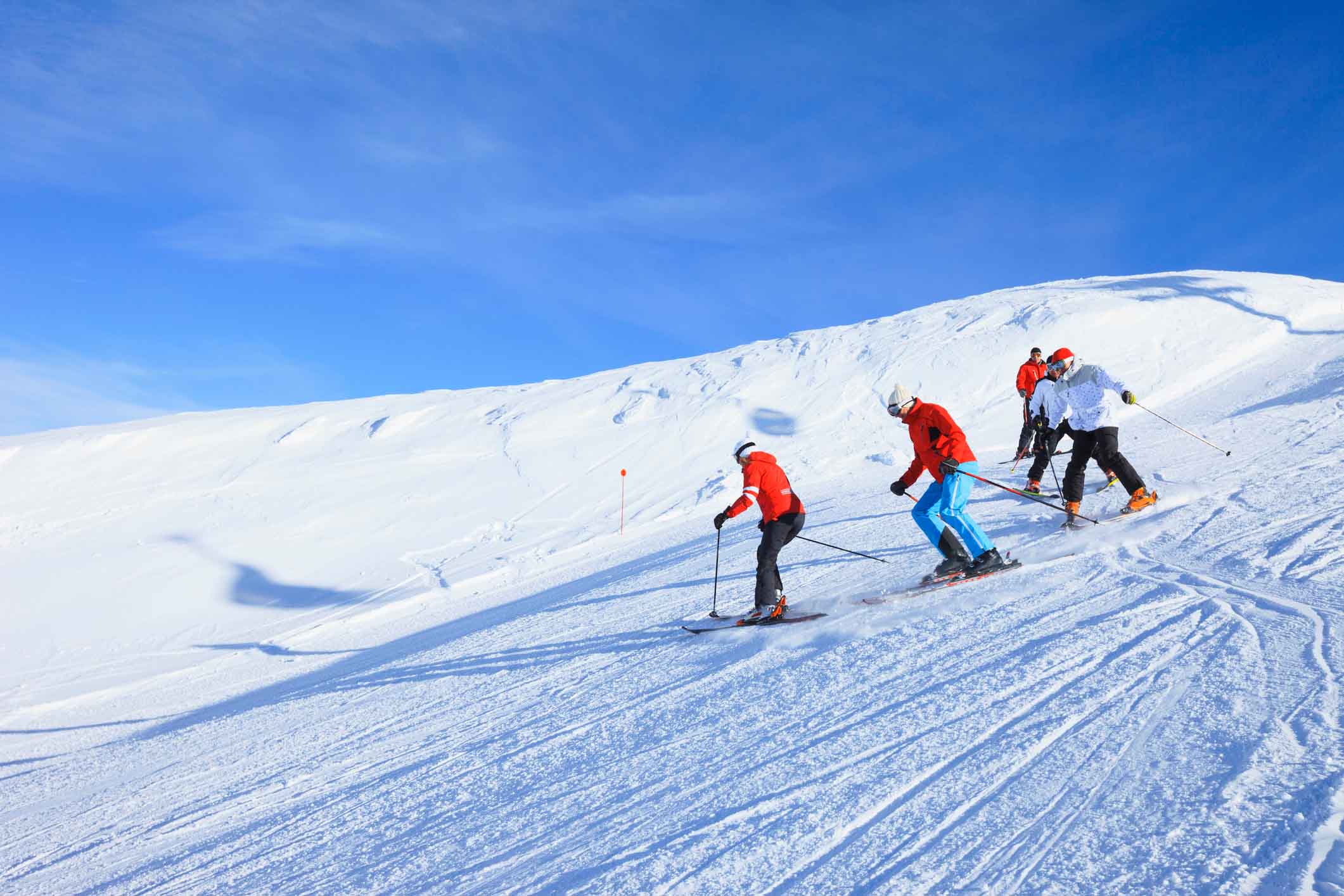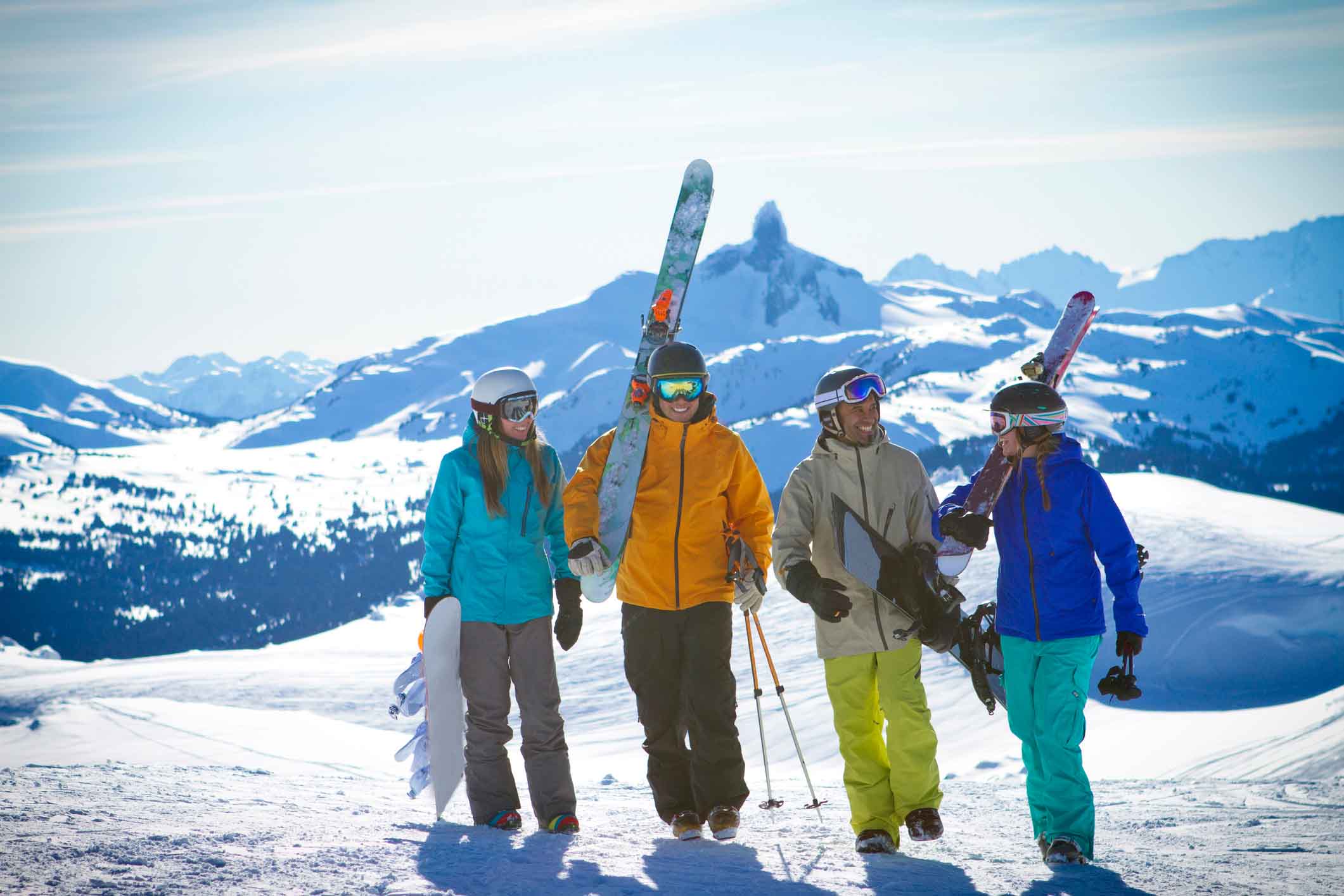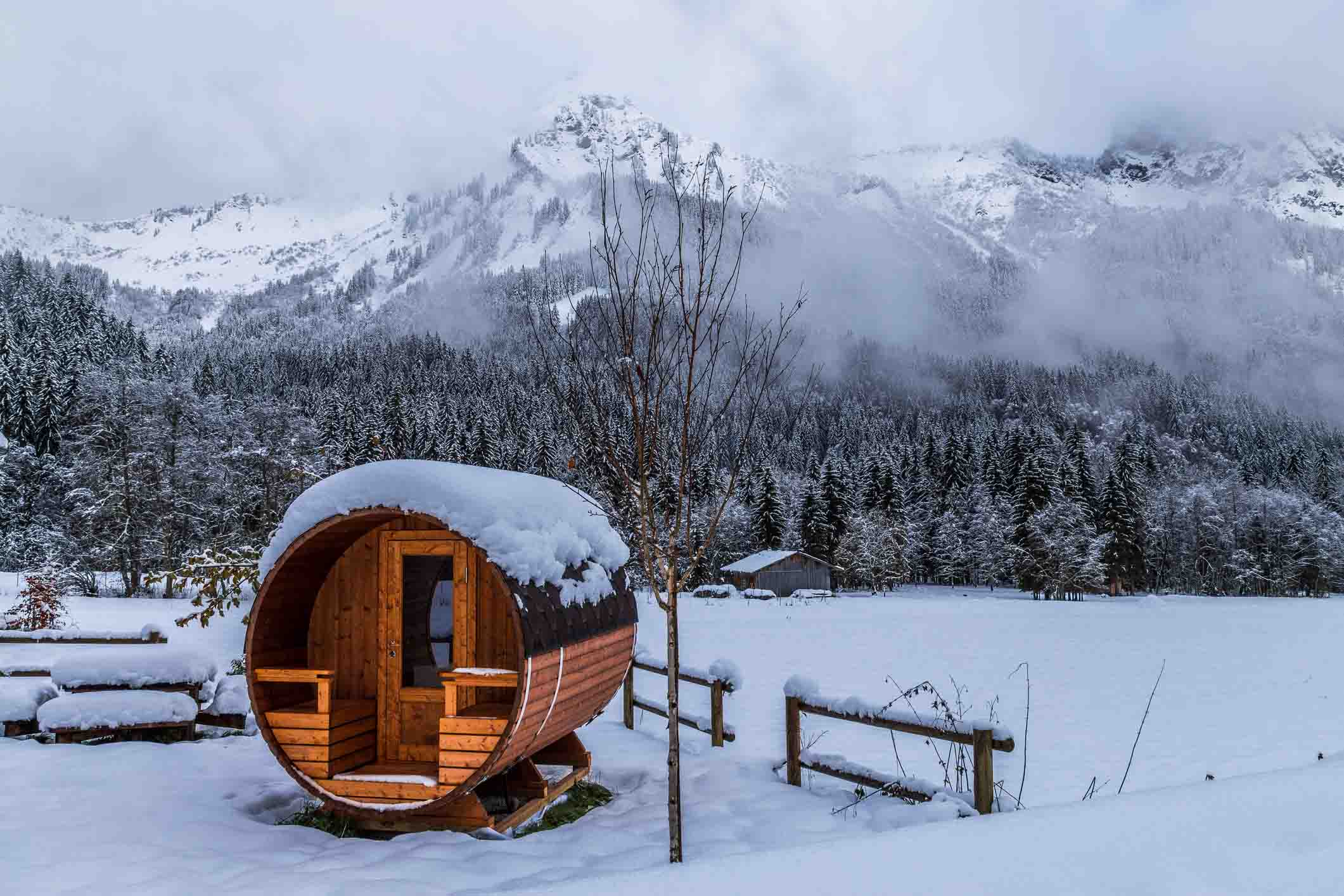Staying fit and healthy should be a key goal for anyone embarking on a skiing trip. To maximise your enjoyment of such an active excursion and prevent the likelihood of any incidents, it pays to plan ahead and use common sense. The skiing industry places a strong emphasis on safety, and ski resorts often have safety measures and patrollers in place to respond to accidents. However, it’s well worth empowering yourself with the right knowledge and finding out how you can decrease skiing’s associated risks.
Like anything in life, there’s never a guarantee that unexpected events won’t happen. While the majority of skiers have safe and enjoyable experiences, accidents can occur. The good news is that there are tried and tested ways to prepare for your ski trip, helping you to maintain your fitness and health and increase the likelihood of only positive memories from your next adventure.
In this essential guide, we’ve compiled all the advice you’ll need on how to avoid ski injuries, along with some useful information on the specific accidents to safeguard yourself against.
How likely is it to get injured while skiing?
The likelihood of getting injured while skiing depends on several factors, including your skill level and the terrain you’re skiing on. Skiing on challenging ground, such as steep slopes, moguls or terrain parks, increases the risk of injury compared to skiing on groomed runs designed for beginners.
Of course, your behaviour on the slopes affects the chance of injuries, so follow proper safety guidance. Additionally, the weather can also have a bearing on how safe it is to ski; poor visibility due to fog, snowfall, or icy conditions can contribute to accidents. Always check the forecast and adjust your skiing style to match the current weather and snow conditions.
Most people who get injured from skiing do so for a number of reasons. These include a lack of experience; a loss of control, which leads to collisions; falling, due to poor technique, icy conditions and uneven terrain; or equipment issues, such as poorly fitted or maintained equipment.
The number one injuries in skiing are knee-related. If you’re wondering how to avoid ACL knee injuries while skiing, along with any other type of accident, you can read more about this below.

How to avoid ski injuries and stay healthy
The more you look after yourself and take precautions, the greater your chances of having an injury-free experience on the slopes.
By following these tips and maintaining a consistent fitness routine, you’ll be better prepared to stay fit and healthy during your ski trip.
Start physically preparing before your trip
Being physically fit and prepared for skiing can reduce the risk of muscle strains and fatigue-related accidents. Cardiovascular conditioning will be beneficial, as skiing is highly physically demanding. Work on your cardiovascular endurance through activities like running, cycling, or swimming.
Strength training will help you to train particular areas of your body. Focus on leg, core, and lower back strength, as these are crucial for this type of sport. Squats, lunges, and planks are all effective exercises to get into the habit of doing before skiing.
Incorporate stretching exercises into your routine to improve flexibility and reduce the risk of muscle strains and injuries. Yoga or Pilates are great for helping to improve your balance and flexibility, so you could join local classes or do at-home sessions by following online videos.
Aerobic fitness is important too. Skiing involves bursts of intense activity, so engage in interval training to get your body used to coping with the associated stress and exertion. Build up your stamina through workouts like HIIT (high-intensity interval training).
Keep your nutrition on point
Maintaining a balanced diet provides the energy needed for safe skiing. Do your research and stock up on foods rich in carbohydrates, proteins, and healthy fats. Slow-release carbs will ensure consistent energy levels, rather than relying on sugary snacks for a quick fix that will cause short-term blood sugar spikes. Incorporate a good assortment of fresh fruit and veg into your diet, along with lean proteins, nuts, pulses and whole grains.
You should also stay hydrated throughout the day, to prevent altitude sickness and muscle cramps, regulate your body temperature and maintain energy levels during the day. Carry water with you at all times, as well as energy snacks for consistent boosts that will prevent exhaustion.
Although skiing burns a lot more calories, which does allow you to eat more than usual to maintain energy levels, avoid indulging in junk food throughout your trip. An occasional treat won’t be the end of the world, but eating lots of junk food can cause you to crash and become unwell. Also try to eat evening meals at least a couple of hours before bed, so that your body can adequately digest food and properly rest when it’s time for sleep.

Pay attention to your equipment and clothing
Using improperly fitted or poorly maintained ski equipment can increase the risk of injury. Regularly inspect your gear and ensure it’s in good condition. Get a trained professional to verify this if you’re not sure. You’ll need to be absolutely certain that your ski equipment fits properly. This avoids potential discomfort that could distract you from keeping a careful eye on your surroundings, or directly result in injuries if it comes loose.
Wearing appropriate safety gear such as helmets, wrist guards, knee pads, and protective clothing can reduce the severity of injuries in case of a fall. It is essential to always wear a helmet at the very least to protect your head, as head-based injuries could be fatal.
Dress in layers to stay warm and dry, but don’t overdress, as you’ll heat up.
Take ski lessons
If you’re a beginner or you haven’t skied for a while, consider taking lessons to learn or brush up on proper techniques and reduce the risk of injury. Novice skiers are generally at a higher risk of injury than experienced skiers, as they’re more likely to lack the skills and control needed to navigate the slopes safely.
Prioritise sufficient rest and recovery
Listen to your body and take breaks when needed to prevent overexertion and fatigue, which reduces your reaction times. Getting enough sleep each night is crucial. This isn’t only a preventative measure; it also allows your body to recover from each day’s activity. Plus, when you’re more energised, you’ll enjoy the experience more and safely improve your skills at a manageable pace.
Take precautions to prevent ski injuries
To avoid ski injuries, it’s crucial to adhere to safety guidelines, ski within your ability level, maintain control, and be mindful of your surroundings and fellow skiers.
Start your day with a proper warm-up to loosen your muscles and prepare them for the physical demands of skiing. It can be dangerous to skip this step, as cold muscles are more susceptible to injuries. Learn how to fall safely to reduce the risk of injury; this will likely be a vital component of any lessons you take.
Skiing at high speeds or engaging in risky behaviours, like jumps and tricks, increases the likelihood of accidents and injuries. If you’re skiing at a high altitude location, give yourself time to acclimatise to the thinner air before attempting strenuous activities.
Skiing under the influence of alcohol can significantly increase the risk of accidents and injuries, so if you must have any, wait until the day is over and don’t consume too much. Even if you only drink in the evening, a hangover can stop you from being appropriately energised and alert the next day.
Use sunscreen to protect your skin from the sun’s harmful UV rays, especially at high altitudes. Reapply it every couple of hours, even if it’s cloudy. Wear proper sunglasses or goggles too, as UV rays are more powerful at a higher elevation.

Don’t underestimate the power of recovery
It’s vital that you use each day’s post-ski period to look after yourself. After a session on the slopes, always perform gentle stretches to prevent muscle tightness that could lead to injury. Hot and cold therapy, such as hot tubs, saunas and ice baths, is highly effective for easing any soreness.
Always listen to your body
Your body knows best what you can and can’t handle, so avoid pushing yourself too hard. Whether you’re skiing for recreation or participating in a competition, don’t ignore any physical signs that you need to rein it in. If you’re feeling fatigued or experiencing pain, don’t push through it. Rest well and seek medical attention if necessary.
Get Skiing Insurance with SportsCover Direct
Why let worries about injury or costly accidents spoil the trip of a lifetime? When you’re taking to the slopes and working on your skills, you want to go out there with full confidence in the knowledge that you’re protected if anything should happen.
SportsCover Direct’s skiing insurance includes cover for medical costs, income protection, and any changes or cancellations to your trip. Whether you’re skiing off-piste, cross-country or ski jumping, we offer protection for a wide range of activities. Choose from different policy options, including travel insurance, a bolt-on to add to your existing provider, or accident insurance.
Get a quote for skiing insurance that meets your needs. You can contact our experienced team if you have any queries.
This blog has been created as general information and should not be taken as advice. Make sure you have the correct level of insurance for your requirements and always review policy documentation.